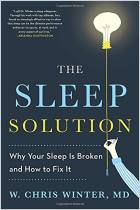
Recommendation
Do you often stay up late watching TV or mindlessly scrolling through social media when you ought to be getting some shut-eye? When work, chores and other responsibilities take over your life, delaying bedtime offers a feeling of control. Ultimately, however, “revenge bedtime procrastination” diminishes your well-being: Less sleep leaves you more irritable, impairs your decision-making abilities and hurts your overall health. Neuroscience buff Anne-Laure Le Cunff examines the root cause of this human foible and offers simple habits you can employ to improve your sleep and quality of life.
Summary
About the Author
Anne-Laure Le Cunff is the founder of Ness Labs, a consultancy that focuses on wellness, creativity and culture in business. She studies neuroscience at King’s College London.
























Comment on this summary or Start Discussion